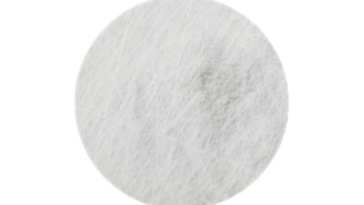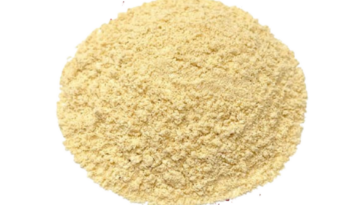Lactobacillus salivarius, commonly abbreviated as L. salivarius, is a species of bacteria that resides predominantly in the human gastrointestinal tract, particularly in the oral cavity and small intestine. The name “salivarius” derives from its initial discovery in saliva, highlighting its natural habitat within the oral microbiome. Discovered by Japanese microbiologist Minoru Kudo in the 1980s, L. salivarius is recognized for its probiotic potential and beneficial effects on human health. It has since garnered significant attention for its ability to promote digestive health, enhance immune function, and even exert antimicrobial properties against harmful pathogens.
The origins of L. salivarius trace back to the complex microbial ecosystems within the human body, where it thrives in environments rich in carbohydrates, such as those found in saliva and the small intestine. Its presence in these niches suggests a co-evolutionary relationship with its human host, where it likely plays a role in maintaining microbial balance and aiding in digestion. Furthermore, L. salivarius has been identified in various fermented foods, such as yogurt and sauerkraut, indicating its historical association with human dietary practices and its potential role as a beneficial microorganism in food fermentation processes. Today, ongoing research continues to elucidate the diverse roles and origins of L. salivarius, shedding light on its potential applications in both medicine and food science.
Vitamins & Minerals:
Lactobacillus salivarius is a species of bacteria commonly found in the gastrointestinal tract, oral cavity, and other mucosal surfaces of humans and animals. While primarily known for its probiotic properties, L. salivarius also contains various vitamins and minerals that contribute to its health benefits. These include:
- Vitamin B12: L. salivarius is capable of producing vitamin B12, also known as cobalamin. Vitamin B12 is essential for numerous bodily functions, including DNA synthesis, red blood cell formation, neurological function, and energy metabolism. Individuals deficient in vitamin B12 may experience fatigue, weakness, neurological symptoms, and anemia. By producing vitamin B12, L. salivarius can potentially help supplement the body’s requirements, particularly in individuals with low dietary intake or malabsorption issues.
- Folate (Vitamin B9): Another important B vitamin produced by L. salivarius is folate, or vitamin B9. Folate plays a crucial role in DNA synthesis and repair, cell division, and the formation of red blood cells. It is particularly vital during periods of rapid cell growth, such as pregnancy and infancy. Folate deficiency can lead to megaloblastic anemia and an increased risk of neural tube defects in infants. By synthesizing folate, L. salivarius contributes to the maintenance of adequate folate levels in the body, supporting overall health and development.
- Calcium: L. salivarius may also contain calcium, an essential mineral for bone health, muscle function, nerve transmission, and hormone secretion. Calcium is crucial for maintaining strong bones and teeth, and it also plays a role in blood clotting and regulating blood pressure. Adequate calcium intake is necessary throughout life, with particular importance during childhood, adolescence, and old age to support bone growth and prevent osteoporosis. While L. salivarius may not be a significant source of calcium compared to dietary sources like dairy products, its presence may contribute to overall calcium intake and absorption in the gut.
In summary, Lactobacillus salivarius contains various vitamins and minerals, including vitamin B12, folate, and possibly calcium. These nutrients play crucial roles in DNA synthesis, red blood cell formation, bone health, and overall bodily functions. By producing or facilitating the absorption of these nutrients, L. salivarius contributes to the maintenance of a healthy microbiome and supports various aspects of human health, from energy metabolism to immune function and beyond.
Probiotic, Prebiotic, or Postbiotic:
Lactobacillus salivarius can indeed be classified as a probiotic. Probiotics are live microorganisms that, when administered in adequate amounts, confer a health benefit on the host. L. salivarius is a bacterium naturally found in the human gastrointestinal tract, particularly in the mouth and intestines. It has been extensively studied for its potential health-promoting properties, including its ability to support digestive health, modulate the immune system, and inhibit the growth of harmful bacteria.
As a probiotic, L. salivarius can exert its beneficial effects by various mechanisms:
- Restoration of Microbial Balance: L. salivarius can help restore the balance of beneficial bacteria in the gut microbiota, which may be disrupted by factors such as antibiotic use, diet, or illness.
- Enhanced Immune Function: L. salivarius has been shown to modulate the immune system, potentially enhancing immune responses and reducing the risk of infections.
- Production of Antimicrobial Substances: L. salivarius can produce antimicrobial substances such as bacteriocins, which inhibit the growth of pathogenic bacteria and contribute to a healthier gut environment.
- Metabolic Benefits: Some studies suggest that L. salivarius may have metabolic benefits, such as the ability to regulate lipid metabolism and glucose levels, which could be beneficial for individuals with metabolic disorders.
Regarding prebiotic and postbiotic classifications:
- Prebiotics are non-digestible fibers that stimulate the growth or activity of beneficial bacteria in the gut. While L. salivarius itself is not a prebiotic, it may interact with prebiotics to enhance their effects by promoting the growth of beneficial bacteria.
- Postbiotics refer to the metabolites or byproducts produced by probiotic bacteria that confer health benefits. While L. salivarius can produce various metabolites, such as short-chain fatty acids and antimicrobial compounds, these are typically considered within the realm of probiotic activity rather than being specifically classified as postbiotics.
In summary, Lactobacillus salivarius is primarily classified as a probiotic due to its ability to confer health benefits when administered in adequate amounts. While it interacts with prebiotics and produces metabolites, its main mode of action is through its direct influence on the gut microbiota and host health.
Dietary & Health Information:
Lactobacillus salivarius, like other probiotic bacteria, can offer various health benefits when consumed as part of a balanced diet. Here’s some dietary and health information regarding L. salivarius:
- Natural Source: L. salivarius is a naturally occurring bacterium found in the human gastrointestinal tract, particularly in the mouth and intestines. It’s also commonly found in fermented foods like yogurt and some types of cheese.
- Probiotic Benefits: L. salivarius is considered a probiotic, which means it can confer health benefits when consumed in adequate amounts. These benefits may include improved digestion, strengthened immune function, and maintenance of a healthy balance of gut bacteria.
- Digestive Health: Studies suggest that L. salivarius may help alleviate symptoms of digestive disorders such as irritable bowel syndrome (IBS), inflammatory bowel disease (IBD), and diarrhea.
- Immune Support: Some research indicates that L. salivarius may help boost the immune system by enhancing the production of certain immune cells and reducing the growth of harmful bacteria in the gut.
- Oral Health: L. salivarius is found in the mouth and may contribute to oral health by inhibiting the growth of cavity-causing bacteria and promoting a healthy balance of oral microflora.
- Dosage: There isn’t a universally recommended maximum dosage for L. salivarius. However, typical doses for probiotics like L. salivarius range from 1 billion to 10 billion colony-forming units (CFUs) per day for general health maintenance. For specific health conditions, higher doses may be recommended, but it’s essential to follow the guidance of a healthcare professional.
- Safety: L. salivarius is generally considered safe for most people when consumed in appropriate amounts, although individuals with compromised immune systems or underlying health conditions should consult a healthcare provider before taking probiotic supplements.
- Storage: Probiotic supplements containing L. salivarius should be stored according to the manufacturer’s instructions to maintain potency and efficacy.
- Combination with Prebiotics: Some studies suggest that consuming probiotics like L. salivarius along with prebiotics (non-digestible fibers that promote the growth of beneficial bacteria) may enhance their effectiveness.
Always remember that individual responses to probiotics can vary, and it’s essential to consult a healthcare provider before starting any new supplement regimen, especially if you have underlying health conditions or concerns.
Scientific Study:
National Institutes of Health (NIH) L. Salivarius Research →




 No products in the cart.
No products in the cart.